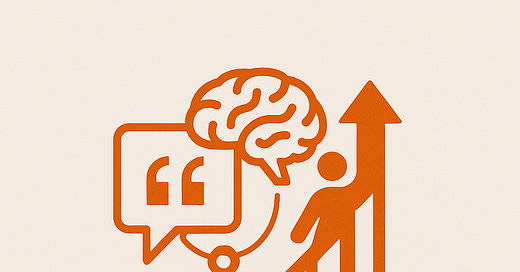A MODERN PARABLE
An agricultural products company's CEO recognized that his organization was repeating costly mistakes. Determined to solve this problem, he instructed managers to compile comprehensive booklets documenting past errors and the specific actions that could have prevented them. These booklets quickly became known throughout the company as "the rulebook". And they are treated almost like sacred text, not to be violated or questioned.
The agricultural market, however, remained as dynamic as ever. Demand for specific products fluctuates based on weather patterns, changing consumer preferences, manufacturing costs, and international relations. The rulebook, based entirely on past experiences, offered no guidance for these evolving market conditions.
As employees faithfully followed the established rules, something unexpected to the company’s leadership occurred: mistakes increased and profits declined. The very tool designed to prevent errors was somehow causing more of them.
Puzzled by this outcome, the CEO hired a consultant to review company processes. The consultant's report delivered shocking news: the "lessons learned rulebook" had become the primary source of their problems.
"How is that possible?" the CEO asked. "How can applying lessons from past mistakes lead to more mistakes?"
The consultant explained that lessons learned should provide flexibility to adapt those insights to current market conditions and future possibilities. However, by transforming these lessons into rigid rules, managers had eliminated the very adaptability that made the lessons valuable. No one felt authorized to modify the sacred text, even when circumstances clearly demanded different approaches.
The CEO realized his well-intentioned solution had created a more serious problem. The company had been trying to apply old solutions to new situations without considering how changed circumstances required modified approaches.
The consultant recommended treating lessons learned as starting points for critical thinking rather than final destinations for decision-making. Past experiences could inform present choices, but only when viewed through the lens of current conditions and future possibilities.
The management of the agricultural company learned that wisdom lies not in blind adherence to past solutions but in the intelligent application of past insights to present challenges.
REFLECTIONS
The most dangerous phrase in organizational thinking may be "that's how we've always done it." When the agricultural company transformed lessons learned into immutable rules, they discovered how yesterday's solutions can become today's problems. Their story reveals a fundamental truth about learning: insights are situational, but principles are adaptable. The rulebook failed because it treated specific responses to specific conditions as universal laws. This reflects a broader human tendency to seek certainty in an uncertain world by creating rigid frameworks for actions. Critical thinking isn't about memorizing correct answers but about developing the discernment to know when those answers need updating. The world changes continuously, and even foundational principles sometimes require revision when new information emerges. Organizations and individuals that thrive understand this paradox. We must learn from the past without becoming prisoners of it.
INTROSPECTIONS
Think about a "rule" or standard practice in your work or personal life that might need updating based on changed circumstances. What past situation created this rule, and how have conditions evolved since then?
Consider a time when following established guidelines led to poor outcomes. What environmental factors had changed that made the old approach ineffective?
How comfortable are you with modifying proven methods when new information suggests a different approach? What helps you distinguish between helpful consistency and harmful rigidity?
THE CATALYST | VOL. 1, NO. 14
Young Speakers Club offers weekly public speaking and leadership training classes for students in grades 1-12. Our evidence-based curriculum builds communication skills while developing critical thinking.
Register for classes online: www.youngspeakersclub.com



This is an incredibly insightful article—thank you for putting this into words. I see this play out every day, and your perspective is spot on. Well done!